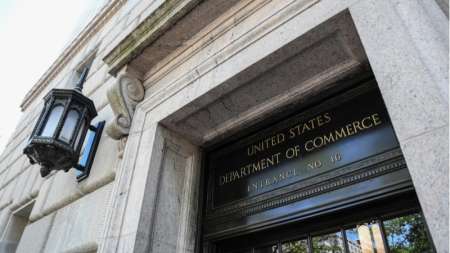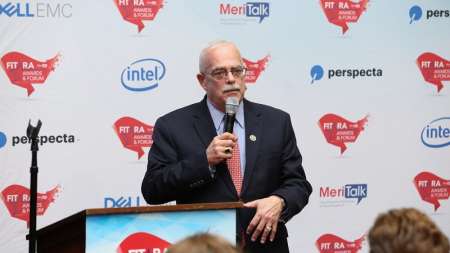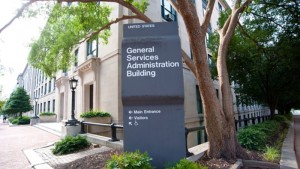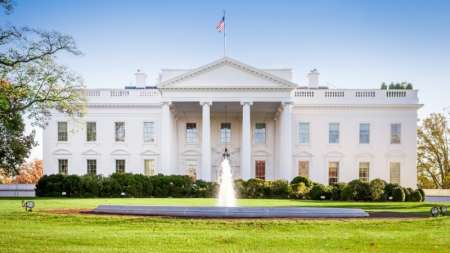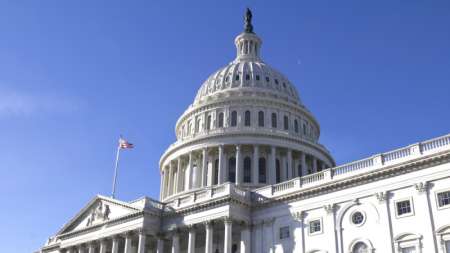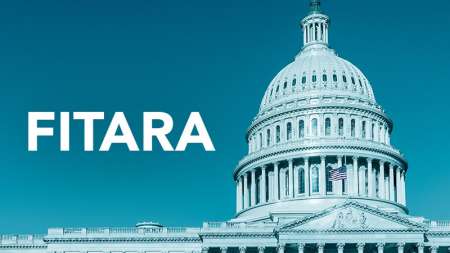Alex Greenstein joined the Commerce Department today as director of the U.S.-European Union (EU) Privacy Shield – which helps companies comply with data protection requirements when transferring personal data from the EU and Switzerland to the U.S. He was a senior advisor for international communications and information policy at the State Department. […]
MeriTalk recently connected with George Young, Vice President of U.S. Public Sector at Elastic, for insight into how the Department of Homeland Security’s CDM (Continuous Diagnostics and Mitigation) Program might soon evolve. […]
MeriTalk announced July 8 that it purchased Cyber Smoke, which hosts bi-monthly gatherings of Federal IT and industry officials that have become “must-attend” exchanges for government and industry in the Washington area. Terms of the purchase from Intelvative were not disclosed. […]
Rutgers University computer scientists funded by the National Science Foundation (NSF) have leveraged artificial intelligence to develop a robotic arm that can package boxes. […]
The Army is looking to commercial-off-the-shelf solutions as the service modernizes its inventory management system, according to a request for information released July 4. Responses are due by July 19. […]
The Securities and Exchange Commission (SEC) updated a Request for Quote (RFQ) to reflect its intention to procure commercially available off-the-shelf (COTS) data subscription for blockchain ledger data. […]
The Office of the Director of National Intelligence (ODNI) is expanding one of its industry outreach programs that aims to modernize the intelligence community’s (IC’s) IT through accelerated tech acquisition processes. […]
Small healthcare providers are less likely to implement cybersecurity policies than larger healthcare organizations, a new CHIME and KLAS white paper found. […]
The Defense Advanced Research Projects Agency (DARPA) announced that it’s launching a new program to identify and put into use technologies that will enable rapid software adaptation for the Defense Department’s (DoD) systems. […]
According to security researchers Chase Dardaman and Jason Wheeler, three security flaws in Zipato smart hubs can be used to unlock doors equipped with smart locks if the flaws are chained together. […]
The National Institute of Standards and Technology (NIST) announced July 2 that it is seeking public comment on a draft plan titled “U.S. Leadership in AI: Plan for Federal Engagement in Developing Technical Standards and Related Tools.” […]
Contradicting President Trump’s comments at the G20 Summit in Japan last weekend, the Department of Commerce has said today that Huawei Technologies remains on the Entity List and will continue to review licenses for exports to Huawei for their national security impacts. […]
The Government Accountability Office (GAO) found in a July 2 report that poor contract change data management and monitoring in the General Services Administration (GSA) and U.S. Army Corps of Engineers (USACE) contributes to inconsistencies agency officials and industry representatives have found in the length of contract change processes. […]
While the Office of Personnel Management (OPM) may be struggling with its outdated and constrained IT systems, the need for modernized technology is not a valid reason to merge OPM with the General Services Administration (GSA), said Rep. Gerry Connolly, D-Va., in a June 30 interview with Government Matters. […]
According to guidance issued by the Chief Human Capital Officers Council within the Office of Personnel Management (OPM), agencies can now use “Data Scientist” with the occupational titles of positions whose major portion of work is performing data science tasks. […]
The General Services Administration Federal Acquisition Service (FAS) Transition Ordering Assistance (TOA) task order is not supporting customer agencies in the government-wide transition to the Enterprise Infrastructure Solutions (EIS) contract, the GSA Inspector General (IG) found in a recent report. […]
The U.S. Air Force announced in a press release the award to Accenture Federal Services of a Compute and Store agreement on June 21. […]
Members of the House and Senate introduced bipartisan companion bills on June 28 to reduce the threat of “deepfake” videos, which use artificial intelligence (AI) technologies to manipulate original video content. […]
The Office of Management and Budget’s (OMB) Circular A-11 for the fiscal year 2021 budget cycle, released June 28, includes new guidance on customer experience (CX), Technology Business Management (TBM), and OMB’s new shared services policy. […]
The U.S. Patent and Trademark Office (USPTO) is seeking nominations for people to serve on the National Medal of Technology and Innovation Nomination Evaluation Committee, which has 12 members who each serve for a minimum of three years and are ultimately appointed by the Commerce Secretary. Members are responsible for reviewing nominations and recommending “the […]
Sen. Elizabeth Warren, D-Mass., wrote a letter to the Federal Communications Commission (FCC) asking about corporate influence on the commission’s Communications Security, Reliability, and Interoperability Council (CSRIC) is influenced by corporate interests and industry insiders. […]
The United States Postal Service (USPS) Corporate Information Security Office will be adding 60 new cybersecurity positions to its workforce, with some requiring security clearances. […]
In a report submitted to Congress June 26, the Election Assistance Commission (EAC) provided a comprehensive update regarding U.S. election systems and security, and identified how EAC data can be used to shore up election cybersecurity. […]
With initiatives like the Federal Data Strategy, the Foundations for Evidence-Based Policymaking Act, and the President’s Management Agenda pushing agency use of data, a new study from the Partnership for Public Service and Grant Thornton examines the best practices for agencies looking to use their data to drive better results. […]
NATO (North Atlantic Treaty Organization) needs to study and address its own and member countries’ space-based asset cybersecurity challenges, a July 1 Chatham House report said. […]
Most Federal agencies earned stable scores in the latest FITARA (Federal Information Technology Acquisition Reform Act) Scorecard issued by the House Oversight and Reform Committee, but two big shifts in the way the committee reached those grades could portend significant changes going forward. […]
A new memo from the Office of Management and Budget (OMB), issued June 28, directs agencies to make all Federal records electronic by the end of 2022, and pushes them to close paper storage facilities in support of “the transition to a fully electronic government.” […]
The transition from military duty to civilian life can be difficult even in the best of circumstances. The ServiceNow Veterans Program aims to ease that passage and put veterans and their spouses in the driver’s seat of careers in the IT sector. […]
President Trump said at the G20 Summit in Japan on Sunday that the U.S. would be lifting some restrictions on Huawei Technologies that have barred American companies from selling technology to the Chinese communication equipment maker. […]
The Social Security Administration (SSA) is seeking information to help it adopt a commercial off-the-shelf (COTS) tool that would bolster the agency’s cybersecurity and help it mitigate breaches in a recent request for information (RFI). […]

